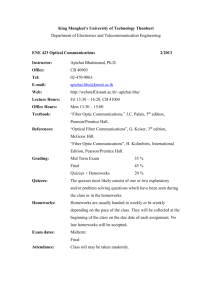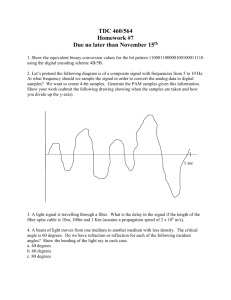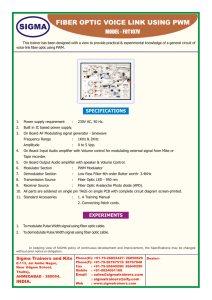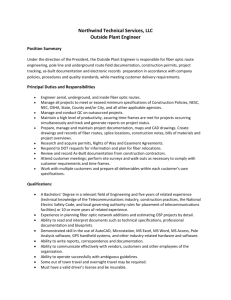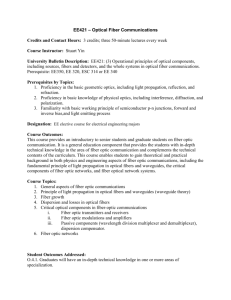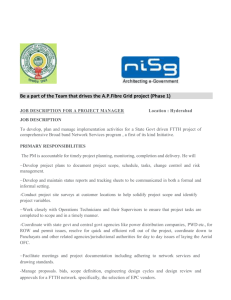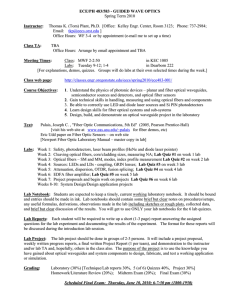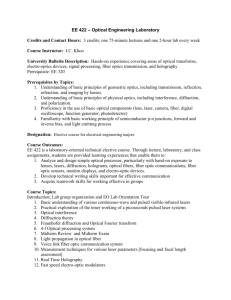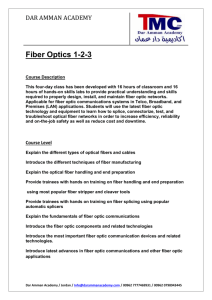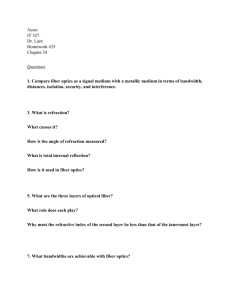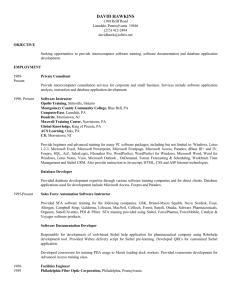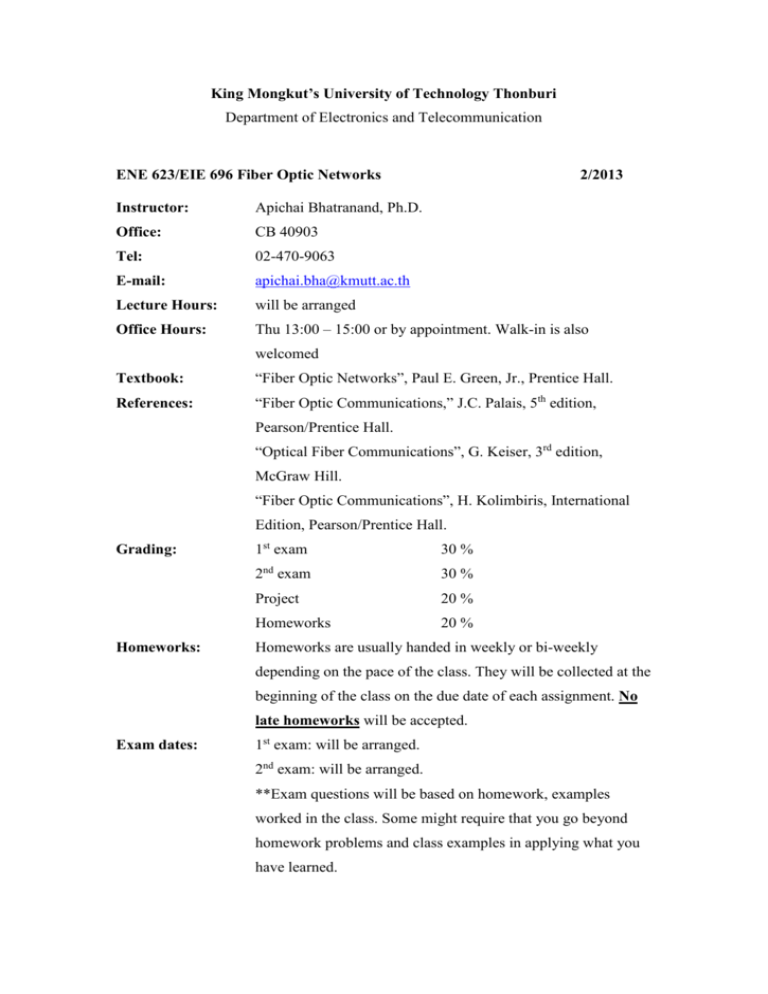
King Mongkut’s University of Technology Thonburi
Department of Electronics and Telecommunication
ENE 623/EIE 696 Fiber Optic Networks
2/2013
Instructor:
Apichai Bhatranand, Ph.D.
Office:
CB 40903
Tel:
02-470-9063
E-mail:
apichai.bha@kmutt.ac.th
Lecture Hours:
will be arranged
Office Hours:
Thu 13:00 – 15:00 or by appointment. Walk-in is also
welcomed
Textbook:
“Fiber Optic Networks”, Paul E. Green, Jr., Prentice Hall.
References:
“Fiber Optic Communications,” J.C. Palais, 5th edition,
Pearson/Prentice Hall.
“Optical Fiber Communications”, G. Keiser, 3rd edition,
McGraw Hill.
“Fiber Optic Communications”, H. Kolimbiris, International
Edition, Pearson/Prentice Hall.
Grading:
Homeworks:
1st exam
30 %
2nd exam
30 %
Project
20 %
Homeworks
20 %
Homeworks are usually handed in weekly or bi-weekly
depending on the pace of the class. They will be collected at the
beginning of the class on the due date of each assignment. No
late homeworks will be accepted.
Exam dates:
1st exam: will be arranged.
2nd exam: will be arranged.
**Exam questions will be based on homework, examples
worked in the class. Some might require that you go beyond
homework problems and class examples in applying what you
have learned.
Course Objectives:
1. Understand the operation and features of components used in fiber optic
networks: fibers, directional couplers, tunable filters, semiconductor lasers,
optical amplifiers, modulators, switches, optical receivers.
2. Be familiar with commonly used optical multiplexing techniques.
3. Have an appreciation for the state-of-the-art in fiber optic network
implementation.
Plagiarism Policy:
Academic honesty is considered to be one of its highest values in this class.
Dishonesty or unethical and unprofessional behavior includes:
(a) Using another person's words, ideas, or results without giving proper credit to
that person; giving the impression that it is the student's own work.
(b) Any form of cheating on examinations.
(c) Altering academic or clinical records.
(d) Falsifying information for any assignments.
(e) Submitting an assignment(s) that was partially or wholly completed by another
student.
(f) Copying work or written text from a student, the Internet, or any document
without giving due credit to the source of the information.
(g) Submitting an assignment(s) for more than one class without enhancing and
refining the assignment, and without first receiving instructor permission. In
cases where previous assignments are allowed to be submitted for another
class, it is the responsibility of the student to enhance the assignment with
additional research and to also submit the original assignment for comparison
purposes.
(h) Assisting another student with reasonable knowledge that the other student
intends to commit any act of academic dishonesty. This offense would
include, but would not be limited to providing an assignment to another
student to submit as his/her own work or allowing another student to copy
answers to any test, examination or assignment.
Academic dishonesty is a serious offense and may result in the following sanctions:
1st offense: Failure of the assignment in which the action occurred.
2nd offense: Failure of the class in which the action occurred.
3rd offense: Expulsion or permanent dismissal from the University.

